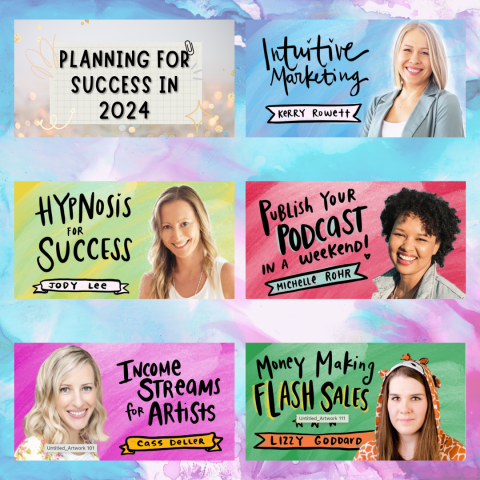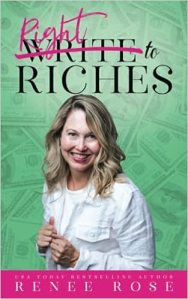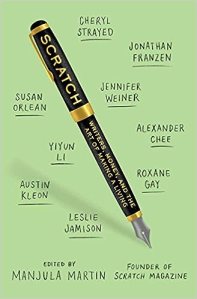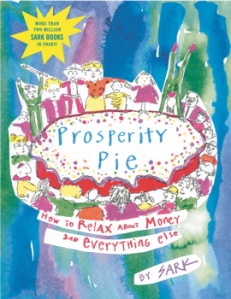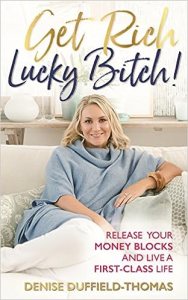Archive for the ‘women and creativity’ Category
A Letter to My Mom: Honoring Mother’s Day and Finding One’s Writing Territory
Posted on: May 1, 2024
My love letter to my courageous mother is next to letters from Suze Orman, Dr. Phil McGraw, Melissa Rivers, will.i.am, Lisa Ling, Dr. Jennifer Arnold and many other amazing sons and daughters. In this third installment of the A Letter to My series…(following A Letter to My Dog and A Letter to My Cat), over sixty contributors share letters that chronicle the love, gratitude, silliness, fun and even conflict that define mother and child relationships. I am so honored to be part of this collection.

My writing teacher, Marjorie Hudson (author of Accidental Birds of the Carolinas) encourages students to ‘find their territory’, to explore the kinds of unique themes and challenges that only they can write about.
The relationship with my mother is definitely my territory. In 2013, I started exploring a snippet of my mother’s life which involved a great act of courage that changed the course of our lives. Since that time, I have continued thinking about the intersection of my life and hers. I am constantly surveying that rich and fertile ground. My mother is no longer living, so writing about her is one way that I can keep her memory alive.

When I saw the call for ‘A Letter to My Mom’, I decided to submit my very personal story. The editor and creator of the A Letter to My series, Lisa Erspamer and her team were amazing. They treated my narrative (and I assume all the others), with great care, respect and unabashed enthusiasm.
A Letter to My Mom is so inspiring and the layout of the book is beautiful. Each entry is accompanied by photos.
Write from the Heart Workshop 8/5 & 8/6: Get Nourished and Get Your Book Done!
Posted on: August 3, 2021
It’s mid-summer. And my morning writing practice is full of it.
Full of summer and full of story.
I don’t know about you, but I love the creativity that summer sparks in me.
And this summer–I have something special for you: A FREE author event that is heart-centered and is about connecting our bodies, minds and imaginations. Feeling embodied and writing with an awareness of the body can lead us to new insights as Herring notes:
Our cells have memories. Our bodies have stored all of our experiences-those expressed and unexpressed, even those forgotten. They are there waiting for us.
-Larraine Herring, Writing Begins With the Breath
I’m delighted to share with you that I’ve teamed up with 10 other amazing writers and writing coaches to bring you:
Write from the Heart: How to create and nourish your fiction or memoir so you can finally finish the book you were born to write.

And what’s more? I’m giving you a complimentary ticket! Yay 🙂
You can claim your seat for this FREE 2-day workshop here: traciskuce.com/mtberger
Check out a few of these heart-centric topics we’ll be covering:
- How to Create a Nurturing Writing Routine
- Developing Stronger Internal Conflicts in Your Novel
- Tap into Your Character’s Impossible Longing
- How to Leverage the Power of Affirmations for Your Writing Life
- How to Create Your Own DIY Writing Retreats
These roughly twenty minute presentations will be packed with tips, exercises and techniques.

My presentation is on one of my favorite topics—the power of positive self-talk: ‘Brain Hacking: how to leverage the power of affirmations for your writing life’.
If you’re ready to nourish your creative heart and dive deep into your story, then you’ll want to register for this FREE event. It happens LIVE August 5 & 6 at 12 pm PT/ 3 pm ET
Get your complimentary ticket here: traciskuce.com/mtberger
Writing Through The Pain: Facing the ‘Isms’ in Publishing for My Latest Column
Posted on: January 10, 2021

One of my writing joys in 2020 was producing a monthly column on creativity for the Chatham County Line. It’s always been a strong publication and great community resource, but under the recent leadership of Randy Voller and Lesley Landis it has flourished. The layout and design is fantastic.
In the summer, I began a three part series about how publishing and writing will change during this decade. The last installment of the series spotlights diversity and is now available. Documenting the ugly things about publishing and its lack of diversity was painful. For a while I had writer’s block (which is atypical for me) because I had to relive and remember the ways I’ve been affected by the cumulative effects of multiple ‘isms’ in publishing’s history. In the end, I found a way to strike a balance between talking about the structural obstacles and point to the tentative positive direction of change. That felt like a win as it gives the average reader a way to understand the issues without overwhelming them. And, I took some of the most charged parts of my experience out to explore in a future long-form essay, so that’s a win, too. Writing always leads to more writing!
You can read it (and parts 1 & 2) on the updated website. I look forward to writing more columns this year. And, if you’ve got a topic you’d like to see me explore, please let me know!
#WeNeedDiverseBooks: Writing and Publishing in the 2020s-Part 3
Coming of age in the 1970s and 1980s, I never read a commercial novel that featured a character that was anything like me: African American, female, wickedly smart, urban, and geeky. The children’s and young adult market was dominated by white heroes, white heroines and white authors. If I came across an African American character, they were typically described by the color of their skin (in contrast to white characters who were never described by skin tone) and simplistically rendered. They functioned as a sidekick, devoid of cultural experiences that connected them to the rich kaleidoscope of African American life. It wasn’t until college (!) that I discovered commercial (and literary) novels that reflected some of my life experiences back to me. This was a result of two factors. One was the success of small independent presses begun by second wave feminists that published new work by a diversity of women writers. The second was that by the mid-1980s traditional publishing briefly opened up to a few African American female writers, including Toni Morrison and Gloria Naylor.
Read the rest here
June is my birthday month and what a month it has been. Fifty-two years ago, I was born during a time of civil unrest and great transition in the U.S. Martin Luther King was assassinated two months before I was born and Robert F. Kennedy was assassinated the day after my birthday. The second wave women’s movement, the civil rights movement, the Black Arts movement, the peace movement, and the LGBTQ movement were all well underway by the time I was a few years old. I’ve always known that my life as a scholar and creative person is predicated on the sacrifice of many nameless activists and change makers who helped pave the way for me. During the first week of June 2020, protests against police brutality directed toward Black and Brown bodies erupted in the United States and around the world. Over the past few weeks I have felt a gamut of emotions as many in the United States are wrestling with our deep legacies of racial injustice. I have felt stunned, uplifted, numb, exhausted, saddened, angered and empowered. I’ve tried to allow myself the time and space to experience all of those feelings.
It is rare that I miss a week communicating with you. Lately though, I’ve wrestled with what to say from one creator to another. Despite all the challenges happening in this moment, my creativity has never felt more solid, deeper or richer. During the past several months, I have dug even deeper into my creative urges and projects. And, many seeds that I’ve been planting in my author garden have started to bloom. I’ve felt guilt though about sharing some of the recent joys and successes. I’ve wondered if readers would wonder why I wasn’t addressing the current moment more. As a creator of color, I am always navigating a complex, inner set of conversations that arise from the complexities of living in a racially stratified world. For example, I wondered should I address the conversations happening in publishing as a result of Black Lives Matter? Should I provide a list of resources about anti-racism for readers? Do I want to provide such lists? How much do I wish to talk about social justice and writing? By not talking about social justice and writing will people think I don’t care about the present moment?
Such questions left me tired.
Historically, writers from dominant communities have had the luxury of not thinking about these issues, or choosing to engage with them as they see fit. The good news is that is changing.
Here’s what I want to say to you, dear reader: I’m thinking about you. If you are struggling as the world is changing around you, you’re not alone. Your creativity and work, however, in the world matters. So does, in my opinion, trying to make the world more just. We as writers and creatives are being called on to undertake more visible and transformative social justice work in the world. This means exploring injustice at the micro and macro levels. In the writing world, this could mean looking at the leadership and structure of the writing organizations we support, the kinds of books we review, and the authors we network with. I believe this is a good thing. I hope you have the energy to do something to make the world more just in your sphere of life. It’s messy. It’s tiring and it sure isn’t pretty. If you don’t have the tools, find kind people that will share their tools with you. Doing this work in community makes the work more joyous.
Also, I have always known that my role on the earth is to uplift and inspire others. I do that in multiple ways as a coach and writer. It does no good for me to play small and hide in the shadows. There are a million ways to resist interrelated systems of oppression and for me, one of them is creating. It does no good for you to play small, either. I will write and share about whatever moves me. That’s basically what I have been doing for the last decade on this blog. I’m saying it here so that I remember it, too.
I’m sharing with you some recent writing joys. I’d love to hear yours, too.
My noir-ish story, “Miss Black Little Hill of 1965” appeared in the recent issue of Blood and Bourbon, a Canadian literary journal. I can now say that I am an internationally published author! A snippet below.
Miss Black Little Hill of 1965
Isabel fingered the teardrop emerald earrings while waiting for her husband to open the passenger door of their car. Two weeks into their marriage, and his gifts kept coming. And, he promised more! She smiled at her good fortune.
He’d caught her eye at church. Strangers at church always do. He said he was visiting his distant cousin. Smooth dark skin, wavy hair, a fine new peanut-brown cashmere coat. Ruby rings on his fingers. From Pensacola, the big city.
A smarter woman would have noticed different things about this man, asked pointed questions. But she didn’t need to be smart, did she? She was, after all, recently crowned Miss Black Little Hill. 1965 was her year, she could feel it.
I shared last November that I attended the Hay House Writers Workshop in Houston. It is hosted by Hay House Publishing, a leading giant in the publishing field on health, spirituality and personal transformation books. In the workshop, they teach you about the publishing business, especially how to write and pitch nonfiction book proposals. Unlike fiction manuscripts where you complete the entire book and then pitch your work, in nonfiction, you write a proposal *before the book* and pitch the idea.

I had wanted to attend this conference for years as I have been working on a book about creativity for some time. So, I made the commitment to go. It was a gift to myself. One of the wonderful things about the workshop is that attendees can submit their book proposals six months later to HH in consideration for publication and you only “compete” with the other attendees. How cool is that? There were about 250 people in attendance and about 75 people submitted proposals. They provide three publishing prizes. Although I didn’t win one of them, I did receive HONORABLE MENTION for my book proposal: The Creative Tickle: 52 Ways to Tap into Your DNA and Divinity!!! And with honorable mention (which I didn’t even know they did) I got SPECIALIZED FEEDBACK on my proposal from the Acquisitions editors. How cool is that? I’m that much closer to getting my ideas into the world. I’m so glad that I didn’t talk myself out of going to the conference (which would have been easy to do for a million reasons) and also of submitting my work (ditto!).
I gathered some of the many wonderful authors together to do a virtual reading from Feminine Rising: Voices of Power and Invisibility, a collection that was released last year, edited by Andrea Fekete and Lara Lillibridge.

I shared some insights from the introduction and then several amazing contributors read an excerpt of their piece. I read a snippet from my essay, “The Poisons Our Mothers and Grandmothers Drank”. The anthology was published last year and there were a few live readings. Timing is a funny thing though, many of us had hoped for the collection to be more visible and despite their being more than 70+ authors, it was hard to get the marketing efforts off the ground. Then the readings that were scheduled for this spring were cancelled due to the pandemic. I decided to reach out to the editors and suggest hosting some virtual readings. They loved the idea and I ran with it. I’ll probably host two more. It was fun and I always learn something new using Zoom. Writers and readers are all desperately seeking community and to feel connected and virtual readings help. I also think that this collection gets timelier every single day.
- Your invitation still stands, click here to get your ‘Ten Ways to Keep Connected to Your Writing Self during COVID-19’.
In late April, I started a YouTube channel. I have been populating it with short excerpts of me reading from recently published fiction. It’s been fun!
Reminder: Last Write-IN happening tomorrow: Thursday, May 28 (3-5 pm and 8-9 pm EST).

How it works:
You log on through a Zoom link, see me on Zoom (everyone one is muted, and video off) and I lead you through a 5 minute writing prompt, mindfulness exercise or gentle stretch.
After that, I turn on an online timer for 45 minutes. You write. At the end of 45 minutes, I come on and encourage you to take a break before the next session (i.e. stretch, drink some water, etc.). We do the same thing during the second hour.
To get the Zoom links for tomorrow’s Write-IN, go here.

